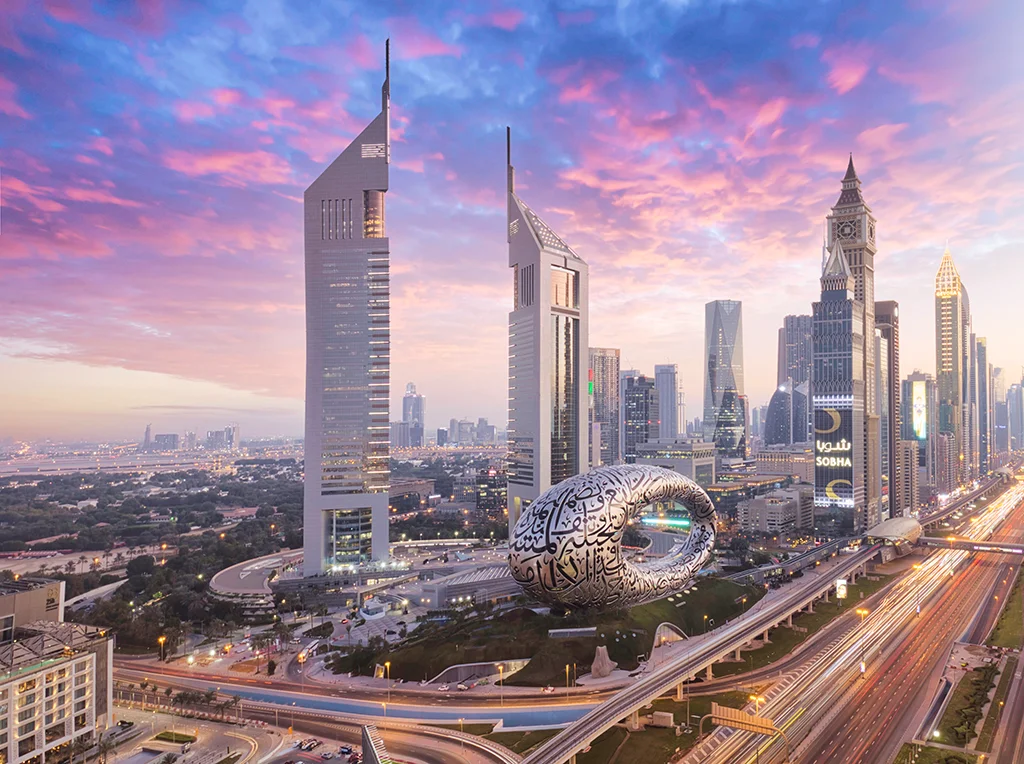Dubai has moved up to 23rd place in Kearney’s 2025 Global Cities Index, reinforcing its position as the Gulf’s leading global hub for business, finance, and culture.
The report highlights how cities across the region are translating long-term national strategies into visible progress on the global stage.
The latest rankings show that Gulf cities are steadily closing the gap with traditional global powerhouses, driven by investments in infrastructure, digital systems, and human capital.
Gulf cities
Riyadh saw one of the largest improvements among Gulf cities, jumping eight places to rank 56th globally, supported by ongoing economic reforms and connectivity upgrades. Manama also recorded a notable gain, climbing 10 positions to reach 125th, as Bahrain strengthens its role in regional logistics and finance.
According to Rudolph Lohmeyer, Senior Partner at Kearney and Head of the National Transformations Institute, “Cities are no longer defined by legacy advantages or sheer scale. Their competitiveness now rests on how well they can cultivate talent, build trust in digital systems, and design livable environments that can withstand volatility. The Gulf’s trajectory is a clear example of how aligning these factors can change a city’s global standing in just a few years.”
Kearney’s Global Cities Outlook, which assesses cities based on future potential in areas like personal well-being, innovation, and governance, also painted a positive picture for the region. Dubai, along with Riyadh, Doha, Dammam, Makkah, Medina, and Manama, recorded steady gains.
The Outlook rankings reflect how Gulf cities are positioning themselves to lead in the coming decades, with a focus on innovation, sustainability, and digital transformation.
“Their rise reflects the results of sustained investment in talent, infrastructure, and environmental resilience — foundations that are strengthening their global competitiveness in the intelligence age,” said Brenna Buckstaff, Principal at Kearney Foresight.
Global trends shift
Globally, the top five spots in the Global Cities Index remained unchanged, with New York, London, Paris, Tokyo, and Singapore holding their positions. However, the report notes growing global diversity in city performance, with places like Almaty, Taipei, and Rio de Janeiro making significant gains.
In the Global Cities Outlook, Munich claimed the top position, overtaking San Francisco. Cities such as Seoul and Singapore moved into the top five, pointing to the growing influence of Asian innovation hubs. In contrast, several Western cities saw declines, impacted by governance and quality-of-life challenges.
The 2025 report concludes that long-term city competitiveness will depend on three main factors: expanding energy capacity, integrating livability and resilience into growth models, and preparing talent for AI and future technologies.
Gulf cities, the report suggests, are already aligning with these goals, putting them in a strong position to navigate future challenges and help shape the next phase of global urban leadership.
tanvir@dubainewsweek.com

